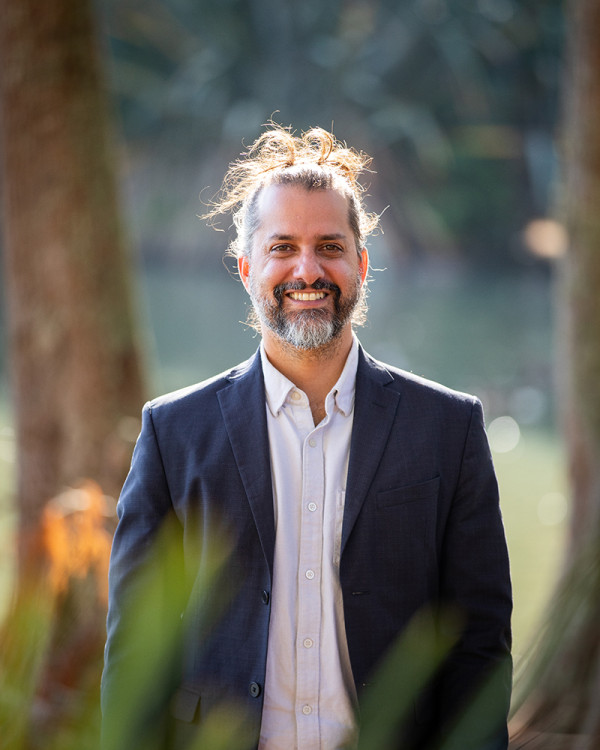By Maggie Shui
In the wake of the floods and Cyclone Gabrielle, the sound of heavy rainfall makes some people feel distressed.
For Emily, the rain fills her with anxiety.
“Prior to this, when it rains or there’s a storm, you have that sense of: ‘it's stormy, but I'm in my house and I'm safe from this.’
“Now, there’s that uncertainty of like, how bad is it going to get? Is this going to be a repeat of what we saw at the start of the year?”
Record rainfall fell on several regions in the North Island in January this year, which was soon followed by Cyclone Gabrielle in February.
These events destroyed homes and livelihoods – Cyclone Gabrielle displaced an estimated 10,000 people and claimed 11 lives.
Most recently, heavy rain in Tāmaki Makaurau on May 9 caused further flooding, and a state of emergency was declared.
Emily, a student in West Auckland who’s going by a pseudonym for her privacy, says that being autistic also makes it difficult to regulate her emotions when she starts feeling stressed about these extreme weather events.
“It feels like all my climate anxieties are coming true and everything feels so out of my control.”
Rebekah, a customer service officer in Manawatū, has experienced similar anxieties when it rains.
“I used to find rain on the roof so calming and peaceful. Now I only worry there will be death and destruction,” she says.
When these anxieties are combined with the experience of something traumatic – your home getting flooded or being displaced, for example – they are similar to the symptoms of post-traumatic stress disorder, Taciano Milfont, Professor of Environmental Psychology at Te Whare Wānanga o Waikato, says.

Taciano Milfont, Professor of Professor of Environmental Psychology at Te Whare Wānanga o Waikato
“Perhaps we are seeing another class of symptoms because these are new to us,” Milfont says.
Classification in the diagnosis manual is often for personal traumas, like rape or violence.
“But up until recently, the consequences of climate change were quite delayed. Now, the experience is happening now. So this is why I think that there is quite a bit of similarity because this can be quite a traumatic experience.”
How do we alleviate these anxieties?
Rain, however, is a fixture of the climate in Aotearoa.
How do we cope with feeling stressed and worried every time it rains?
Milfont says at the crux of people’s eco-anxieties, regardless of whether or not they’re post-traumatic, is that sense of uncertainty and loss of control.
To try to regain a sense of control, he says it can be helpful to take practical action such as creating an emergency plan in the event of another flood.
This can “bring some certainty” to an uncertain situation, he says.
“Think about creating a checklist of: am I prepared? If there's flooding in my house, are there ways that I can avoid the water coming in? Can I put the furniture up? Can I move to another family member or friend’s house for a period?”
Another soothing thing to do is to share your feelings with others.
He says people should try “not to hold on to their emotions, and to find ways to share that. It could be with friends, family members or, if it's really strong, with professionals”.
Motivation for action
“We tend to believe environmental problems are going to happen in the future.
“So a temporal dimension. It’s going to happen there – a geographical dimension; to them – a social dimension. And perhaps we are not certain that's going to happen, so there’s a hypothetical dimension.”
Milfont says these factors increase the “psychological distance” we feel between ourselves and the climate crisis but when people experience eco-anxiety, they are experiencing first-hand the consequences of the climate crisis.
A silver lining of these anxieties is that they can encourage “action to mitigate climate change”, he says.
“It might have negative consequences in terms of distress and anxiety in people. But hopefully, it will also lead people to get motivated to act.”
Where to get help:
- 1737: The nationwide, 24/7 mental health support line. Call or text 1737 to speak to a trained counsellor.
- Suicide Crisis Line: Free call 0508 TAUTOKO or 0508 828 865. Nationwide 24/7 support line operated by experienced counsellors with advanced suicide prevention training.
- Youthline: Free call 0800 376 633, free text 234. Nationwide service focused on supporting young people.
- OUTLine NZ: Freephone 0800 OUTLINE (0800 688 5463). National service that helps LGBTIQ+ New Zealanders access support, information and a sense of community.
More stories:
Five tips for how to cope with eco-anxiety
“All of these emotions are valid and they are a reflection of the systems that we're living in."
‘The final warning’: the new climate report’s big takeaways
Cyclone Gabrielle is just the beginning.
The Ministry of Education has failed Kura Kaupapa Māori
"For Māori by Māori in Māori education works – I am proof. Now the Crown must invest in it."